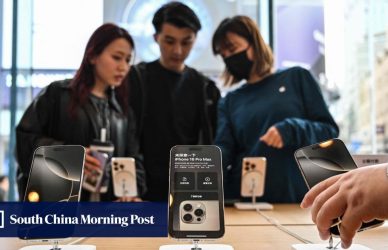Xreal, the Chinese augmented reality start-up behind Google’s first Android XR-powered augmented reality (AR) glasses, is gearing up for the mass-market release of its lightweight eyewear as early as the first quarter of 2026, its co-founder said.
Code-named Project Aura, the product was first announced at Google’s annual I/O developer conference in May. Rivalling offerings from Apple and Meta Platforms, Google adopted a strategy from its smartphone playbook: providing the operating system – Android XR – while collaborating with hardware makers.
Project Aura is Google’s second XR initiative, following Moohan, a collaboration with Samsung Electronics on a virtual reality headset similar to Apple’s Vision Pro.
Aura’s field of view (FoV) – the visible area seen through the glasses – exceeds 70 degrees, “the largest screen we have ever made”, according to a statement from Xreal at the Augmented World Expo in June. The device will be powered by a Qualcomm Snapdragon chipset alongside Xreal’s own XR-optimised X1S chip.

“This achievement is thanks to Xreal’s extensive experience in optical engineering, enabling thinner lenses with broader fields of view,” Wu Kejian, the company’s co-founder, chief scientist and head of algorithms, said in an interview with the South China Morning Post.










